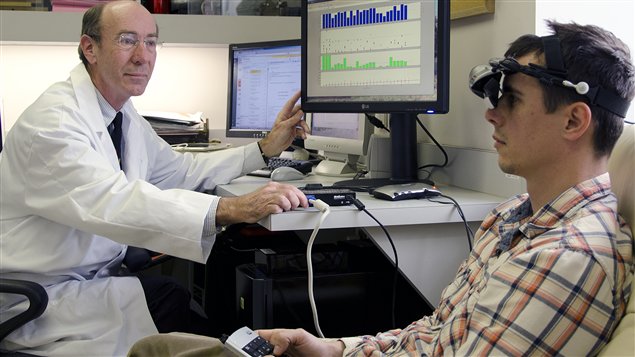Patching a person’s good eye has not been an effective way to treat amblyopia or lazy eye. The popular puzzle video game Tetris has been used by researchers at the McGill University Health Centre to treat the problem in adults. It has been effective in getting both eyes working and restoring stereoscopic vision.
Amblyopia affects up to three per cent of the population and is the most common cause of visual impairment in children. It is treated by putting a patch over the child’s good eye, forcing the lazy one to work harder. It is only successful in some cases and it’s difficult to get children to comply.
“It’s always a tug of war between the parents and the child to maintain the patch being worn as long as possible,” says Dr. Robert Hess, director of Research Department of Ophthalmology at the Research Institute of the McGill University Health Centre. The child is using the eye with the poorer vision which can be uncomfortable and elicit teasing. So researchers were eager to find a new way to treat amblyopia.
Scientists used to think they could not treat adults believing until a few years ago that the brain was not plastic enough to adapt to change. They also believed that the cause of amblyopia was that one eye did not develop and became “lazy.” New research indicates it is rather that the strong eye suppresses the lazy eye. So researchers began to look for ways the stop the suppression.

The video game is adjusted so that each eye sees something different and the two must work together. The information to the good eye is reduced such that the other must work harder. Then over several sessions the difference is reduced to a more normal state. The treatment takes one hour a day for 4-6 weeks.
This treatment has worked well in adults and will soon be introduced to ophthalmologists and optometrists to use on their patients. Studies are underway to see if it can also help children.







For reasons beyond our control, and for an undetermined period of time, our comment section is now closed. However, our social networks remain open to your contributions.